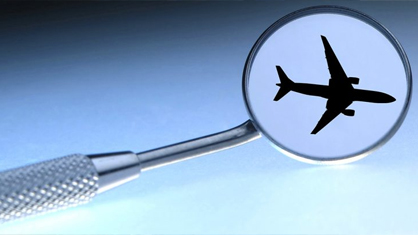 The New Zealand dental sector is likely to be challenged and disrupted by the growing phenomenon of dental tourism, the most popular form of medical tourism.
The New Zealand dental sector is likely to be challenged and disrupted by the growing phenomenon of dental tourism, the most popular form of medical tourism.
People seeking cheaper medical treatment overseas is a multi-million dollar global industry. In the UK for instance, many travel to Eastern Europe for more affordable procedures, while Thailand is also a popular destination, with medical tourists seeking to combine medical treatment with a holiday.
People seek treatment for different reasons, including cost, long waiting lists, unavailability of services perceived better care, or unwillingness of local practitioners to undertake a procedure.
While there are views that cross-border dental care patients are risking inferior care in regions with lower standards, there has been little research done to document the practice and the implications.
Associate Professor Brent Lovelock, Dr Kirsten Lovelock and Professor Karl Lyons surveyed New Zealand dentists, including dental practitioners and specialists, on their knowledge and views on dental tourism. They wanted to know the extent of outbound dental tourism and the effects - on the individuals who had received the treatment, the dentist's practice, and the wider dental health system in New Zealand.
Their findings show New Zealanders, like the rest of the world, are seeking affordable treatment abroad, and this is making some New Zealand dental practitioners apprehensive.
Some New Zealanders travelled to Asian countries, particularly Thailand, India, Indonesia, China and Malaysia to receive affordable treatment, while there were also instances of people travelling to the UK, USA and Australia.
Many seek treatment without informing their New Zealand dentist first.
An increasing number of New Zealand dentists have subsequently treated those medical tourists on their return. They report that some patients have received poor treatments and have had problems and pain, but not all of the treatments were bad – some dentists noted high quality work. The industry's main concerns are that dental tourists may not know how to choose a good provider, and they may not be given all the options, so are effectively not giving informed consent. Also, there is no record-sharing and little continuity of care.
Dentists were concerned that patients were unaware of the risks of receiving treatment overseas – and hadn't thought about issues such as having a reaction to an anesthetic, an infection when travelling by plane, or follow-up care. The lack of record sharing means the New Zealand dental practitioner often didn't know exactly what was done.
There is genuine concern about the risk and the potential to endanger individual patient's dental health – two thirds of dentists in the survey were worried about this.
There is also disquiet about the economic impact of dental tourism, particularly as dentists in New Zealand have to meet ever-increasing compliance requirements and rising costs. There is also impact on the dental industry – ACC for example paying to fix medical misadventure caused by overseas providers.
Some dentists are wary of the legalities of fixing substandard care.
The dental industry therefore needs to understand both the legal and ethical requirements associated with treating returned dental tourists, and develop policies regarding their responsibilities – such as the advice given to patients before and post treatment, by dental authorities in the UK and the US.
They may also need to develop alternative solutions for greater patient involvement, including shared decision-making and the sharing of notes between the two practices and the patient.
As Prof Lovelock observes, the key is for dental tourists is knowledge. “Don't take a gamble - investigate the risks and the treatment provider to ensure you are fully informed.”








